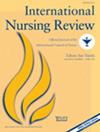Enablers and inhibitors of nursing and midwifery leadership in Pacific Island collectivist cultures
Abstract
Aim
To identify and explore inhibitors and enablers of nursing and midwifery leadership in the Pacific; to develop context-specific recommendations for policy and practice.
Background
Many Pacific Island countries experience poor health outcomes and are vulnerable to climate-related health emergencies. Nursing and midwifery leadership is essential to improve regional health outcomes through influencing policy decisions, strengthening health systems and ensuring optimal health workforce utilisation. Understanding factors affecting health professional leadership facilitates action to remove obstacles and stimulate professional development for emerging leaders.
Methods
This qualitative study utilised a culturally sensitive co-designed approach and follows the COREQ criteria. The PARcific research methodology synthesised Participant Action Research with Pacific methodologies for culturally safe interviews with 136 stakeholders.
Results
Major enablers of leadership identified were professional development, particularly skills in communication, project planning and data literacy; adequate workforce resources; effective workforce management; support from peers and managers; and personal confidence and courage. Participants identified main inhibitors: inadequate workforce resources; limited cultural sensitivity; and poor understanding of national and regional strategies.
However, perspectives varied between different participant groups. International and regional policy makers did not recognise the critical importance of workforce resources and individual agency to fostering nursing and midwifery leadership.
Discussion
Joint action to enhance health professional leadership will promote better policymaking leading to improved health outcomes.
Implications for health policy
Professional development should specifically include leadership training using culturally appropriate methods and mechanisms for management and peer support. Leadership development also requires adequate workforce resources to support training; regional standards for accreditation and professional development; improved formal and informal communication pathways; established regional policy directions; and a regional taskforce with health professionals trained to provide crisis leadership.


 求助内容:
求助内容: 应助结果提醒方式:
应助结果提醒方式:


